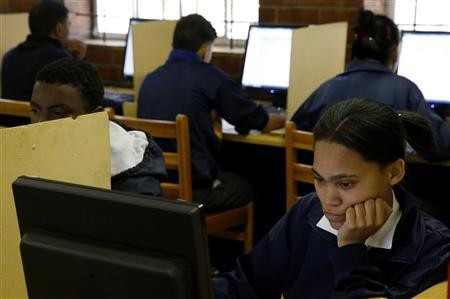White Spaces Technology: How Tech Giants Bring Broadband to Africa

A pioneering project to bring broadband to developing countries using 'white spaces' technology has taken an unexpected turn in the typhoon-hit Philippine island of Bohol, following the 7.2-magnitude earthquake that killed thousands in October.
Bohol was one of the places selected by Microsoft for the trial of 'white spaces' technology, a 12-month initiative which uses idle channels in the broadcast TV spectrum, coupled with solar or wind base stations, to provide connectivity in rural areas.
"When the earthquake hit, this low-cost technology was used for deploying network in disaster recovery and to get community centres connected, covering areas that were completely destroyed," said Paul Garnett, director of technology policy at Microsoft Corporation. "It also provided free Skype and internet access."
Besides the Philippines, Microsoft - which has been testing TV white spaces for 12 years - has focused mainly in the African continent, which is the world's last major untouched market for Internet access.
Only 16% of the population use the Internet and few Africans have the landlines to connect. Google and Microsoft are chasing this massive market, attempting to provide white spaces Internet access to rural areas.
"We have the fastest growing economies, the largest youth population and a huge workforce," said Garnett.
Microsoft is running pilot schemes in a number of locations, including Kenya, South Africa and Tanzania.
What is White Spaces technology?
With the passage of TV broadcast from analogue to digital, the unused TV radio frequencies - which can travel farther than traditional broadband technologies and penetrate walls - are used by Microsoft to provide connectivity at a cheaper price in the most remote areas of the continent.
The adapted TV radio waves can travel up to 10 kilometres, making them perfect to connect remote villages.
Microsoft started with a trial project to deliver broadband to remote villages in Kenya's Rift Valley. Then, a second pilot in the university of Dar er Salaam, Tanzania, followed, before the launch of a further project in South Africa.
The tech giant partners with local Internet service companies to provide connectivity. In Keya, Indigo Telecom and the United States Agency for international development are working together for the Mawingu Project to provide wireless broadband to rural schools, a health clinic and the local county government office.
"It is not something that Microsoft does on its own," Ludo De Bock, alliance manager at Microsoft Corporation, told IBTimes UK. "Everywhere there's an interest to have a partnership, Microsoft is willing to provide this service with the local community.
"You also need government to change policies. If the government does not agree to make this bandwidth available to send data then it doesn't make sense," he said.
Solutionism in action?
Kenyans who live in remote areas - 70% of the total according to estimates - never use internet and have no access to electricity. Internet cafes are usually expensive and unaffordable for the population. The project also provides service for charging batteries to use at home.
"If your income is $1,50 a day, with these models you share the connection and get down to really low costs so people can be part of the community," De Bock says. "You play on the social element of the people and help the economy of the country, help people start their own business."
Indigo is currently providing free Internet to schools but plans to charge the Kenyans living in the community $1.50 per month for connectivity in future.
Some African governments have expressed reservations about whether the project could affect existing military frequencies. Other countries have warned that the process to change regulations could take a couple of years.
The project has been criticised by some technology academics and experts who cautioned that the local schools may have other needs than connectivity - such as clean water, toilets and electricity.
De Bock says Microsoft's project goes directly to the root of the problem
"With connectivity you not only bring connectivity, you also bring energy because white spaces doesn't work if you have no energy," he said. "We bring solar or wind energy.
"What is gonna be the biggest impact in your life? Is it the toilet that will have a bigger impact on your personal development or is it having internet access, thanks to which you can have education and then develop yourself and afford the toilets.
"Many project people put massive money into basic infrastructure, but once it is there it fulfils [only] one need and people couldn't grow."
© Copyright IBTimes 2025. All rights reserved.





















